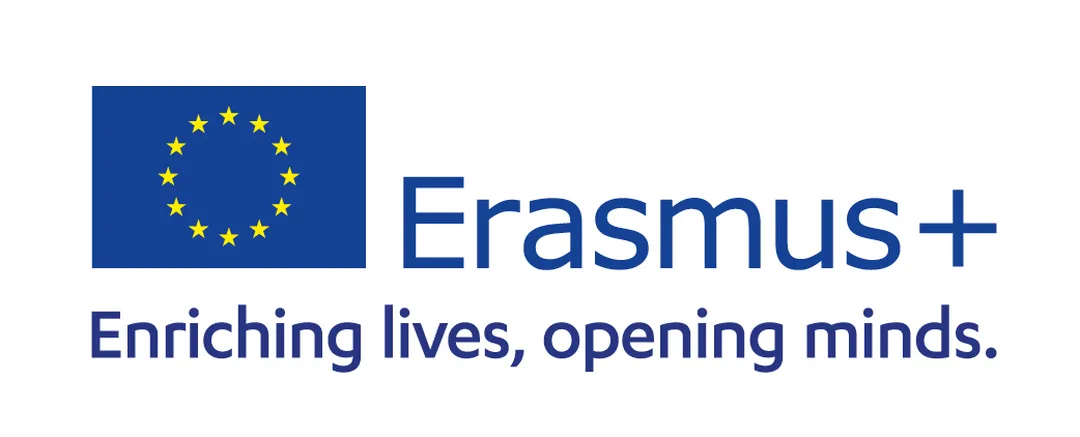Oguz Kaan Kısa · May 24, 2021

Have you ever wanted to live abroad and experience a foreign culture, meet new people and learn a foreign language? When looking for a job in the future, have you considered increasing the efficiency of your work and having better career chances? Have you ever been excited to share your ideas and create good things with other students from all over the world? Well, have you ever dreamed of learning to do an internship abroad and work collaboratively?
Erasmus + Program is an European subsidizing program that was set up in 1987 and offers university understudies the chance to do an internship job abroad for in any event 2 months and a limit of a year for each study program. More than two million students have made Erasmus since its establishment. Of course, the program isn't all about socializing; Erasmus gives students the chance to study, work or learn a language in another European country during their stay at university. Erasmus + now offers the possibility to go beyond European borders. Basically, it is a chance for universities and students in 33 countries to mix, learn new skills and broaden their horizons.
Erasmus is a student exchange program in which a student spends a few months in a calendar year at a European university. Alternatively, the student can also do an internship in a European country. Scholarships are available.
Erasmus + is a program that provides scholarships to study at European universities. There are Joint Programs (Post Graduate Courses and Joint Doctorates) run by a group of universities.
Both programs have now been combined into a single program, Erasmus +. You can read all the detailed information about Erasmus + in our guide.
The aim of the Erasmus + program is a comprehensive and qualified program that promotes employment growth, social equality and harmonization with the European Union. It also contributes to Europe's growth, employment, social equality and participation strategy and the objectives of ET2020, the EU's strategic framework for education and training.
Erasmus + is also a program that aims to encourage the sustainable development of its partners in the field of higher education and contribute to the achievement of the goals of the EU Youth Strategy.
In practice, Erasmus + offers study abroad programs ranging from 2 to 12 months for undergraduate, graduate and doctoral students. Each education level is considered as a 'semester' and students can stay abroad for a maximum of 12 months for one semester. Funding is usually given to students participating in an Erasmus + program. The grant provided is usually several hundred Euros per month, depending on the cost of living where your education abroad takes place. In addition, Erasmus + students are exempt from tuition fees at the university they attend.
In addition to study abroad programs, Erasmus also offers internship and vocational training opportunities. These programs vary depending on your field of study, but can take between two weeks and 12 months. The internships are funded by the European Commission, but the funding is managed by the organization or program where you are doing the internship. To participate in the Erasmus internship, you must be in a participatory training program or graduate within a year.
The Aims of the Erasmus + Program are as follows:
- Reducing unemployment, especially among young people
- Supporting student learning for new skills required by the labor market
- To encourage young people to participate in European democracy
- Supporting innovation, collaboration and reform
- Reducing early leaves from school (education)
- To encourage cooperation with partner countries of the EU
Despite the fact that qualification for the Erasmus + program shifts starting with one country then onto the next, it is a program open to numerous people and universities.
Students can take part in a large portion of the chances financed by Erasmus +, however most need to do as such through an association remembered for the program. The qualification of students and colleges relies upon their nation of home.
Qualified countries are separated into two gatherings as Erasmus + program nations and accomplice nations. While Erasmus + countries are qualified for all prospects of the Erasmus + program, accomplice nations can just partake in a portion of the program and are dependent upon specific conditions.
After completing the first year of university, higher education students can benefit from Erasmus + studies and Erasmus + placement programs. There is no age limit.
Each student is awarded a grant that partially covers the cost of staying abroad. Grants differ in sending and host countries. Universities clearly report the amount of the grant to students.
Students who exchange within the scope of the Erasmus + program pay their tuition fees at their own universities.
You should be aware that in most cases, only the Erasmus + grant will not cover all of your living expenses.
The good thing about the Erasmus + program is that you do not have to pay extra tuition fees for the foreign university you go to for the exchange program. Another great feature of the Erasmus + program is that you can receive grants for your education or work placement.
In addition, there is a one-time fee of € 400 for students who choose to do Erasmus + in less popular countries. Currently, if you are spending a full academic year (24 weeks) in an Erasmus + program, you do not have to pay tuition fees for your home university.
You usually apply for the Erasmus + program through the university you study at. In this case, you should apply to your university's Erasmus + coordinator. Applications are usually made online between October and February. If you receive an admission, the university abroad will contact the university you are currently studying at. You will then be contacted by the university and all information regarding the admission process will be provided by you.

 Back
BackLet us find your dream university.
